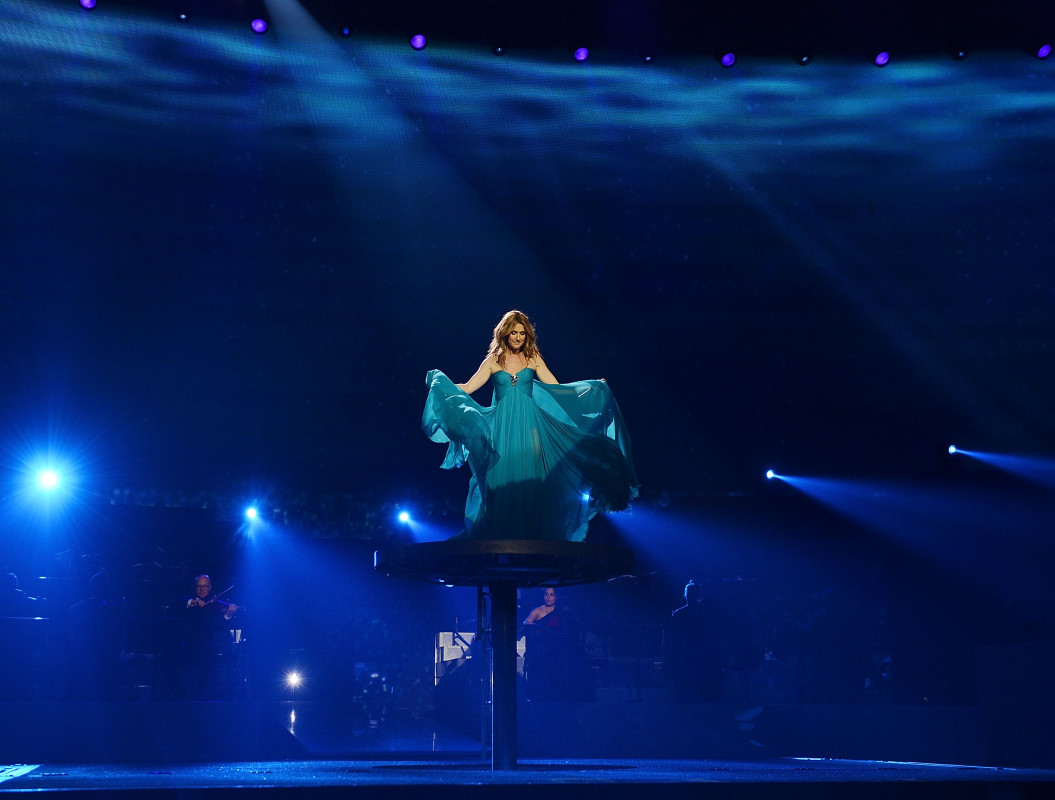
Las Vegas wouldn’t be Las Vegas without spectacle: From the Strip’s bright lights and flamboyant architecture to the Bellagio Hotel’s dancing fountains to its newest phenomenon — the Sphere, a $2.8 billion sensory venue that must be seen to be believed.
Outside of Sin City's smokey gambling halls, investors have poured billions into projects like Allegiant Stadium, the host of Super Bowl LVIII, and the new Fontainebleau Las Vegas Resort, transforming Sin City into a global entertainment destination.
According to Statista and the Las Vegas Tourism Board, of the 38 million people who visited in 2022, only 22% came to gamble, while more than half were there to see a show.
View the original article to see embedded media.
What is a Las Vegas residency?
A Vegas concert residency is a series of concerts or performances that take place in only one location — Las Vegas. Artists enjoy the comforts concert residencies provide since they’re rooted in one place, often renting or buying nearby mansions to live in, eschewing the hassles of bringing their band members and equipment on tour.
Fans flock to Las Vegas residencies for their convenience: They can pick a date that works best for them to see their favorite artist instead of waiting for a tour to stop in their town.

Denise Truscello/WireImage
Attracting many of the world’s best-loved talents, Las Vegas residencies come in a variety of shapes and sizes, from intimate supper clubs, like the 1,000-seat Voltaire at the Venetian, which hosted Kylie Minogue in 2023, to the mid-sized 4,000-seat Colosseum at Caesars Palace, where Jerry Seinfeld and The Killers headlined, to name a few.
The largest of Las Vegas’ concert venues is the Sphere — it can accommodate up to 20,000 people and recently hosted U2’s multimedia concert spectacle, “U2/UV: Achtung Baby Live at Sphere,” which grossed more than $240 million, making it one of the best-selling concert residencies in history.
Related: Iconic Las Vegas Strip resort casino getting massive overhaul
What is the longest-standing residency in Vegas?
The award for Vegas’ longest-tenured concert residency goes to Penn & Teller. Curtains have gone up continuously for their magic shows since 1993.
Adele enjoys the distinction of having one of the shorter Las Vegas residencies, with a total of 100 performances. Her show was postponed several times due to Covid-19 and stage issues, but she has always rescheduled; in fact, the most recent 10 shows that were rescheduled for 2024 have already sold out.
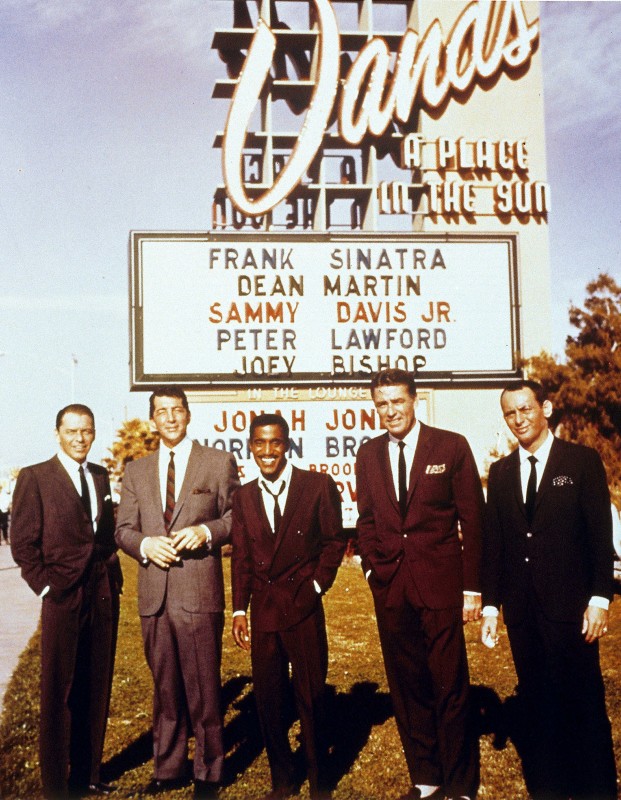
GAB Archive/Redferns
An entertaining history of Las Vegas residencies
Las Vegas has reinvented itself through the years with the speed and ease of a Poker dealer shuffling their deck, yet its focus on providing top-notch entertainment has remained constant.
Vegas’ vaudeville years
In 1858, the discovery of silver ore in the hills of Reno, known as the Comstock Lode, put Nevada on the map. The Union Pacific Railroad soon followed, and Las Vegas was established in 1905.
During the Great Depression, Nevada’s first gambling license was issued: The Northern Club offered craps games, poker, a few coin-operated slot machines, and stage revues with all-female dancers. Workers from the Hoover Dam project frequented Las Vegas in their off-hours, and by 1935, the city’s population doubled.
More entertainment content:
- Shakira’s net worth: The pop icon's wealth and income after 4 decades in music
- Billie Eilish’s net worth: How the pop icon makes her millions
-
J. Cole’s net worth: How NC's favorite rapper makes his millions
The Mob’s glory days
In 1947, the Flamingo Hotel opened. As the first casino on the Las Vegas Strip, it was managed by mobster Benjamin “Bugsy” Siegel — but Siegel’s luck would run out quickly. Six months after the hotel’s debut, he was mysteriously gunned down outside his mansion; ironically, the sensational photos of Siegel’s bullet-ridden body actually helped publicize the Flamingo Hotel, drawing even more visitors to Sin City.
Siegel was credited as the mastermind behind the Las Vegas residency, as he enticed his Hollywood friends into joining him in the desert by signing entertainers like Jimmy Durante to perform at his hotel. In fact, Durante was Flamingo's opening act, and he would return to the venue frequently over the course of his career.
The mob had a hand in introducing the world to another entertainment sensation: The Rat Pack. Featuring Frank Sinatra, Dean Martin, Sammy Davis, Jr., Peter Lawford, and Joey Bishop, the group performed two shows a night at the Sands Hotel and Casino throughout the 1950s and early 1960s, and their blend of jokes and swagger made Las Vegas even more popular.
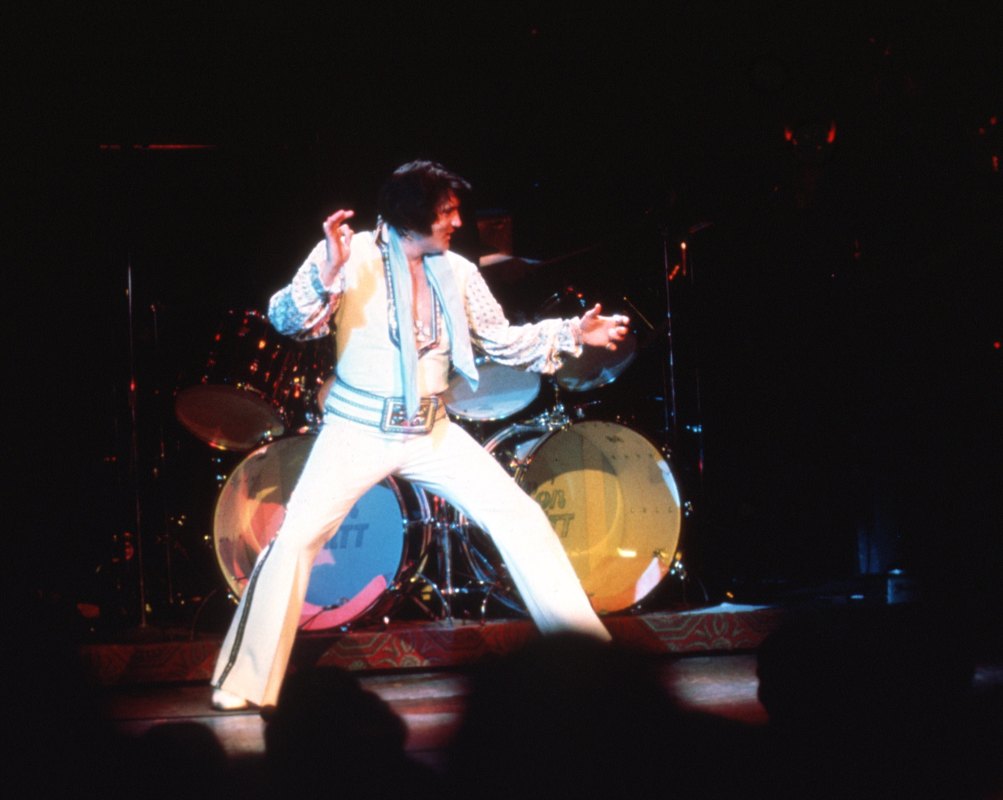
Michael Ochs Archives/Getty Images
In the 1960s and 1970s, Wayne Newton and Elvis Presley headlined in Vegas, at the Flamingo and the Las Vegas Hilton, respectively. Newton enjoyed one of the city’s longest residencies, playing six shows a day for five years, while Presley used his stage to mount a tremendous career comeback.
But in the process, Presley became overwhelmed by his rigorous performance schedule — and the five-year, $5 million contract his manager, Colonel Tom Parker unwittingly locked him into — and started taking barbiturates to relieve his exhaustion. As a result, he suffered a lethal heart attack in 1977.
Around the same time, the state of Nevada began cracking down on the mob operators who controlled Sin City’s casinos, particularly those who practiced skimming, or the concealment of profits to avoid paying taxes. In 1976, it revoked the license of Frank “Lefty” Rosenthal who ran the Stardust Casino; in 1979, federal agents shut down the Aladdin Hotel, indicting its executives.
Related: Las Vegas Strip casino signs country superstar to new residency
Rebirth as a family-friendly entertainment destination
By the time the mob was run out of Las Vegas, concert residencies had lost their luster. Vegas became synonymous with “lounge acts,” where past-their-prime entertainers stagnated before they stopped performing for good.
Cher, who held a 1980–81 stint at Caesar’s Palace, described the scene to People Magazine as “an elephant graveyard where talent goes to die.”
Technology created more disruption in the 1980s, as betting traffic on electronic slot machines surpassed that of table games. The New York Times reported on Atlantic City’s emergence as a gambling destination, along with the rise of state lotteries, which together accounted for $17 billion in revenues by 1988.
To compete, the Las Vegas Convention Bureau repositioned the city as a destination for corporate meetings and conventions — and a place where even families were welcomed.
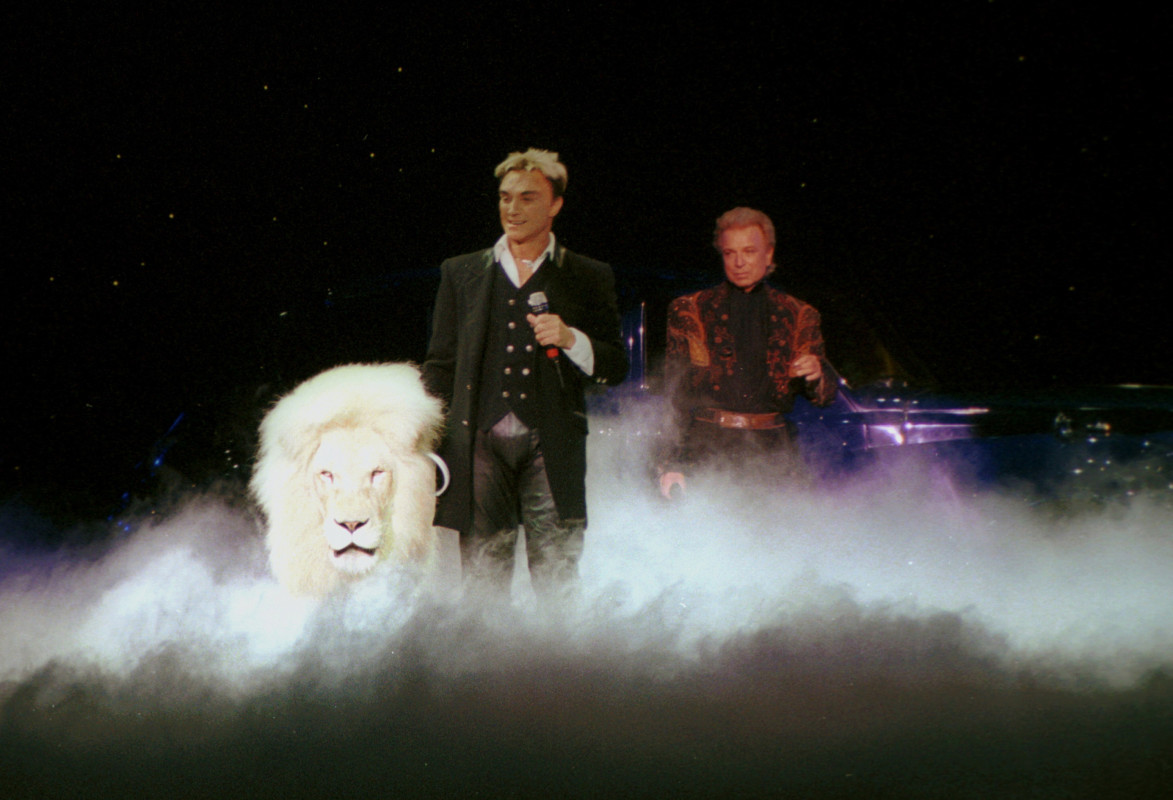
Peter Bischoff/Getty Images
The Gold Coast Casino added bowling lanes, movie theaters, and daycare centers so that children could be supervised while their parents hit the slots.
Commercial developers like Steve Wynn started building a very different style of casino, one that spelled fun for all ages, with erupting volcanoes at the Golden Nugget, desert fairways at the Wynn Golf Club, and Siegfried & Roy’s illusion show, featuring a bevy of exotic animals, at The Mirage Hotel.
Siegfried and Roy's self-titled show, which lasted from 1990–2003, ended tragically when Roy Horn was mauled by a white tiger named Mantecore. Although witnesses said the tiger attacked Horn, he maintained that the beast actually saved his life, as it noticed that he was suffering a stroke, picked him up, and rushed him off stage. The perennially sold-out show had generated $44 million a year for the Mirage, but after its abrupt cancellation, the hotel faced millions in losses.
By the 2000s, Las Vegas was operating 6 of the 10 largest hotels in the world. Visitors flocked to see Enrique Iglesias and the Backstreet Boys live in concert, often followed by dinner at a Wolfgang Puck or Emeril Lagasse-helmed restaurant.
Yet even these strides weren’t enough to save the city from sinking into a recession after the September 11, 2001 terrorist attacks. Tourism dropped precipitously and thousands of hospitality workers lost their jobs; even worse was the Great Recession, which stemmed from the 2007–2008 Financial Crisis, when Las Vegas’ unemployment levels hit a staggering 14.5%.
It took a superstar of megawatt proportions to turn Vegas around.
And that performer was Celine Dion.
View the original article to see embedded media.
A “New Day” for Las Vegas
Dion’s husband, René Angélil, who was also her manager and producer, came up with a show-stopping idea: Blend Dion’s power vocals with the over-the-top visuals of Cirque du Soleil. He enlisted the help of Franco Dragone, the creative force behind two of the legendary entertainment company's most acrobatic shows, “Mystère” and “O.”
In 2003, Dion halted her “New Day” touring schedule and took up residence in Las Vegas. Caesar’s Palace constructed a 4,000-seat theater for her show, and the project came with a $108 million price tag. It featured a $10 million LED screen, the largest in North America at the time.
Dion herself took part in the on-stage theatrics, belting out her ballads while strapped to a harness that ascended 70 feet into the air. “A New Day” was originally planned for a three-year run, but it proved so popular that it was extended for two more years, ultimately grossing $385 million.
Related: Las Vegas Strip casino brings back a favorite gambling style
By marrying technological innovations with performance artistry, Dion had made the Las Vegas residency cool again, thus paving the way for a new generation of performers — and their fans — to see their favorite entertainers live.
Millennial performers joined the circuit; Britney Spears successfully jump-started her career with “Piece of Me,” her 2013 Vegas residency. “Piece of Me” grossed $137 million over four years; at the same time, the Las Vegas Convention Bureau reported a decline in the average age of its visitors from 50 to 45.
Concert residencies not only became a way to lure younger audiences to Vegas; they also introduced new fans to different genres, like country music. Miranda Lambert proved that Nashville was no longer the capital of country music with her sold-out “Velvet Rodeo” residency. it was so successful that she even received a key to the Las Vegas Strip.
Vegas would go on to host additional country music residencies from Shania Twain, Carrie Underwood, Garth Brooks, Keith Urban, and Luke Bryan, all in 2024 alone, and many expect Spanish-language performers will soon follow in their bedazzled footsteps with Vegas residencies of their own.
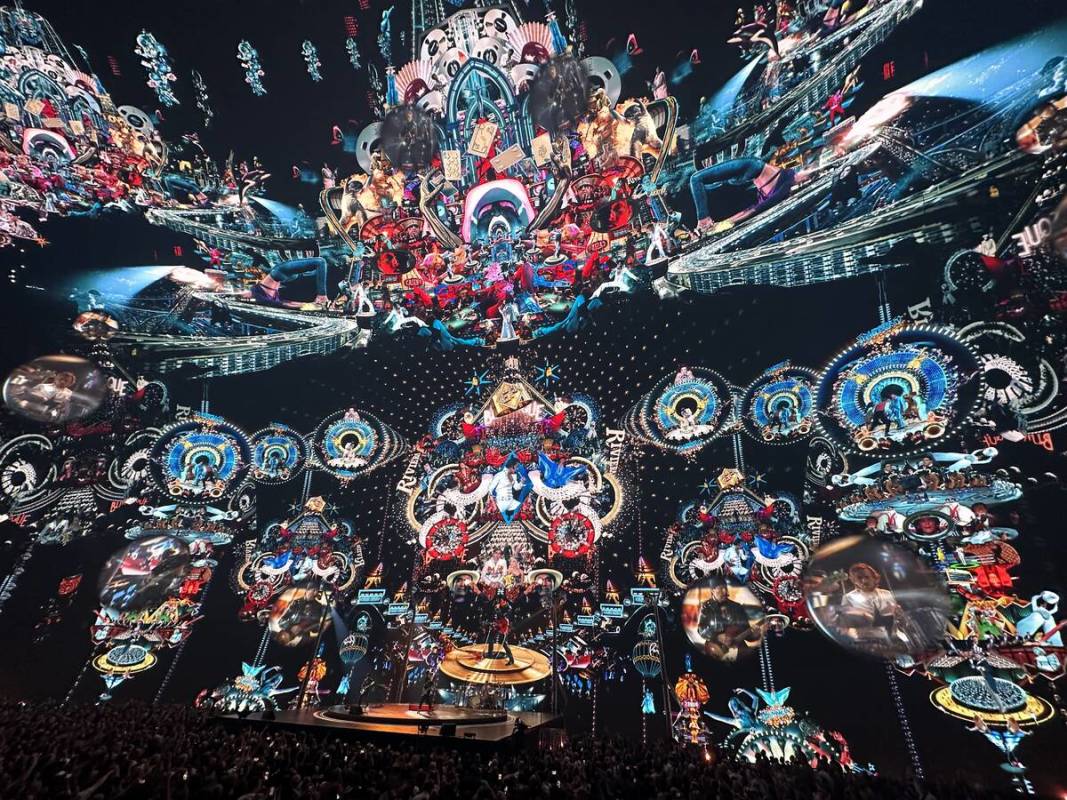
John Katsilometes/Las Vegas Review-Journal
The top 5 highest-grossing Las Vegas residencies of all time
Here’s a look at the top 5 Las Vegas residencies (by gross ticket sales) in history:
1. Celine Dion, “A New Day,”
- Number of shows: 717
- Ticket sales revenue: $385 million
- Length: 2003–2007
- Venue: The Colosseum at Caesars Palace
Dion sold out more than 700 consecutive performances at The Colosseum in the early 2000s, generating a total of $385 million in ticket sales. According to Newsweek, that amounted to more than the Rat Pack, Liberace, and Elvis combined.
Under the terms of her contract, Dion received a $100 million cut plus 50% of all gross profits.
2. Celine Dion, “Celine”
- Number of shows: 427
- Ticket sales revenue: $296 million
- Length: 20011–2019
- Venue: The Colosseum at Caesars Palace
In between Dion’s first and second residencies, Las Vegas lost $6 billion in casino revenues. “Celine” is estimated to have pumped $114 million back into the local economy, and Dion was credited with saving the city, once again.
However, in 2015, Dion briefly canceled all performances while Angélil underwent treatment for throat cancer before he ultimately succumbed to the disease in January 2016. One month later, Dion resumed her residency as a tribute to her husband — and became Queen of Las Vegas along the way.
Related: The Las Vegas Strip faces new casino smoking ban pressure
3. U2, “U2/UV: Achtung Baby Live at Sphere”
- Number of shows: 40
- Ticket sales revenue: $244.5 million
- Length: 2023–2024
- Venue: The Sphere at the Venetian Resort
MSG Sports had conducted a five-year search to find an act that could match the scale and quality of their immersive technology, eventually landing on U2, a band known for staging inventive multimedia performances throughout their almost half-century career.
The Sphere’s eye-popping spherical display featured a 160,000 square-foot-LED screen with 16k resolution, boasting the ability to generate propulsive effects, like wind and scent, as well as produce impossibly perfect sound quality.
After U2’s original 25-show run sold out, additional dates were added, and their residency was extended through March 2024, ultimately selling 663,000 tickets.
4. Elton John, “The Red Piano”
- Number of shows: 247
- Ticket sales revenue: $169 million
- Length: 2004–2009
- Venue: The Colosseum at Caesars Palace
In between world tours, Elton John staged a 248-show residency at Caesars Palace, collaborating with famed photographer David LaChapelle, who brilliantly heightened the Piano Man’s themes with a backdrop of video montages and pop art films.
John’s residency first began with just 75 shows but was extended numerous times due to its popularity. It eventually grossed $169 million.
5. Britney Spears, “Piece of Me”
- Number of shows: 248
- Ticket sales revenue: $137 million
- Length: 2013–2017
- Venue: Planet Hollywood Resort & Casino
Parlaying off the success of the electronic dance music (EDM) scene, Britney Spears launched her residency with a “club-like atmosphere” that was a “massive party from start to finish,” as described to Shape magazine.
Spears descended from a golden cage and staged elaborate routines featuring hundreds of dancers. Prices for “Piece of Me” tickets were about $50 lower than for shows at Caesars Palace, which was in line with younger demographics, but that didn’t stop her from cashing in.
Spears was said to have earned $300,000 per night during the four-year run, and in 2017 alone, she made $34 million. Ticket sales grossed $137 million, and nearly one million people lined up to see Spears perform.
Related: Veteran fund manager picks favorite stocks for 2024







